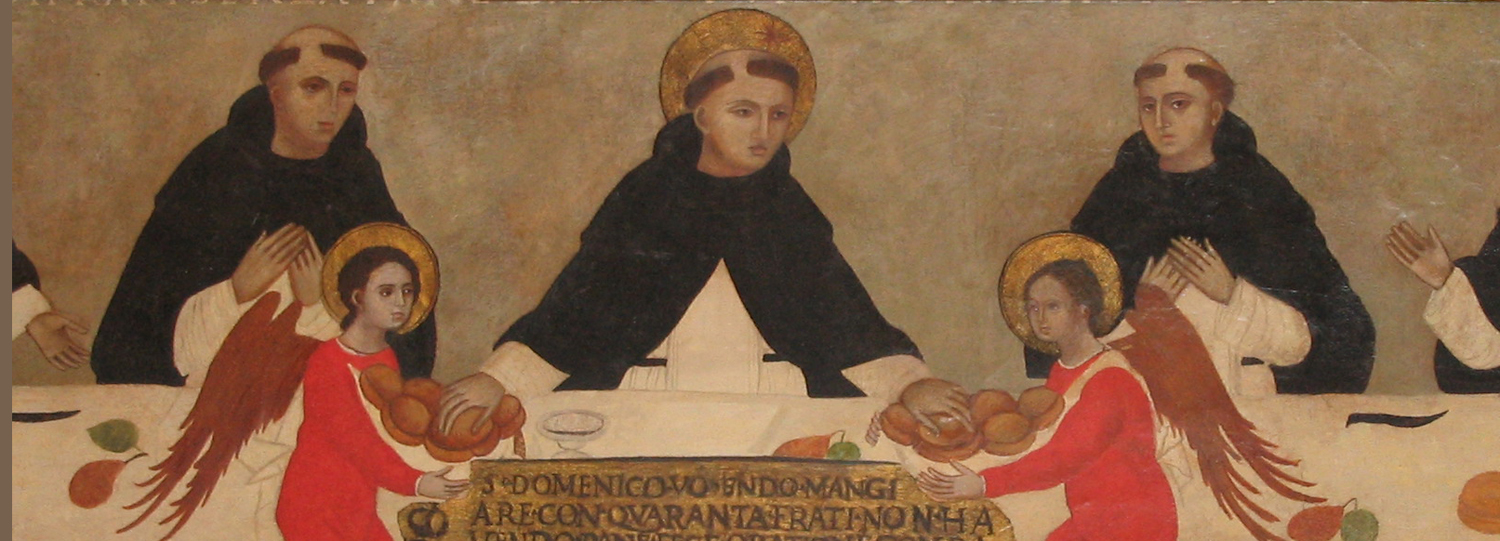

Monastery of Our Lady of the Rosary
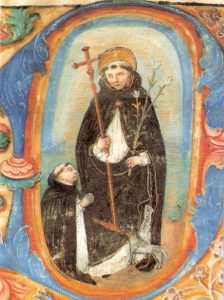 God answered this prayer of Saint Dominic in a most unexpected way. At the time he made the prayer, he was a Canon Regular in the cathedral church in Osma, Spain. Requested to accompany his bishop, Diego, on a seemingly simple mission – that of arranging a marriage for the son of King Alfonso of Castile – Dominic found himself traveling through large stretches of country where the people had abandoned the Catholic faith to embrace an enticing heresy. Moved with compassion, and on fire for the Truth, the life’s work of Dominic was beginning.
God answered this prayer of Saint Dominic in a most unexpected way. At the time he made the prayer, he was a Canon Regular in the cathedral church in Osma, Spain. Requested to accompany his bishop, Diego, on a seemingly simple mission – that of arranging a marriage for the son of King Alfonso of Castile – Dominic found himself traveling through large stretches of country where the people had abandoned the Catholic faith to embrace an enticing heresy. Moved with compassion, and on fire for the Truth, the life’s work of Dominic was beginning.
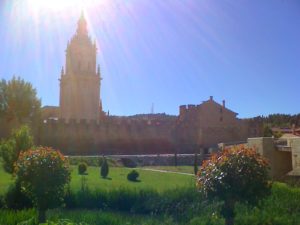
Once again the King sent Bishop Diego and Dominic on a journey, this time to escort his son’s betrothed back to Castile for the wedding. Upon arrival, they learned that the young woman had died. Yet this trip was not wasted, for “God was making use of it … to arrange the beginnings of a much more wonderful marriage between Himself and souls, in which souls throughout the Church would be joined to everlasting salvation and recalled in various ways from various kinds of sin and error.” (Libellus 16) Bishop Diego and Dominic then headed for Rome, and laid the situation of wide-spread heresy and their desire to serve the Church, at the feet of Pope Innocent III. Diego he requested to continue his work as bishop of Osma, and Dominic he commissioned to preach among the heretics and draw them back to the faith.
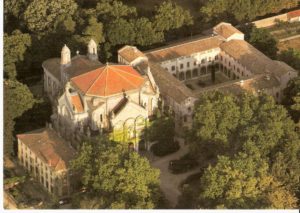 As the two made their way back to Spain, they observed the contrast between the simple and austere life adopted by the heretics, and the wealth and comfort of the other monks and prelates whom the Pope had sent to combat the heresy. Dominic wholeheartedly embraced the poverty and simplicity of the Gospel, which, together with his extensive education in Scripture and theology, equipped him for his mission of preaching and engaging in public disputations. Successes were varied, companions came and went, and then Dominic understood that he needed to found a house of nuns to pray for the conversion of hearts — so that the hearts of those enmeshed in heresy would be open to the Truth. He founded his first monastery of nuns in southern France, at a little church called Our Lady of Prouilhe. This was the turning point in his early work; the Order began to grow and the “holy preaching”, in which the nuns shared by their prayer and penance, began to draw more and more souls back to the true faith.
As the two made their way back to Spain, they observed the contrast between the simple and austere life adopted by the heretics, and the wealth and comfort of the other monks and prelates whom the Pope had sent to combat the heresy. Dominic wholeheartedly embraced the poverty and simplicity of the Gospel, which, together with his extensive education in Scripture and theology, equipped him for his mission of preaching and engaging in public disputations. Successes were varied, companions came and went, and then Dominic understood that he needed to found a house of nuns to pray for the conversion of hearts — so that the hearts of those enmeshed in heresy would be open to the Truth. He founded his first monastery of nuns in southern France, at a little church called Our Lady of Prouilhe. This was the turning point in his early work; the Order began to grow and the “holy preaching”, in which the nuns shared by their prayer and penance, began to draw more and more souls back to the true faith.
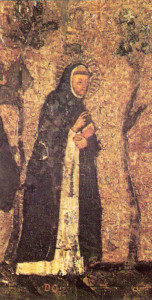 Zeal
ZealWhether in preaching or at prayer, St. Dominic was ever zealous for the salvation of souls. “He was very fervent in his preaching and often used to weep while preaching, which made the people weep too.” (Canonization Process, 33) “He was very fervent in prayer and in preaching, and, because he was zealous for souls, he encouraged his brethren most insistently to be the same.” (Canonization Process, 18) He spent his nights in fervent prayer to the extent that many of the brethren did not think he had a bed of his own. “While he prayed, our holy father Dominic would become more and more assured of the mercy of God, both for himself and for all sinners….” (Nine Ways of Prayer) “He had a supreme love of poverty for himself and for his Order.” (Canonization Process, 42) He was zealous in observing the Rule, even while traveling. “Everybody was enfolded in the wide embrace of his charity, and since he loved everyone, everyone loved him.” (Libellus, 11)
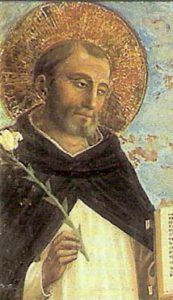 In August of 1221, Dominic was stricken with an illness upon his arrival in Bologna, and passed to his heavenly reward at the age of 51. The Order had been confirmed in 1216, and he had established houses of brethren throughout Europe, as well as three monasteries of nuns. He was canonized in 1234. Truly, “his innocence of life shone out like the morning star.”
In August of 1221, Dominic was stricken with an illness upon his arrival in Bologna, and passed to his heavenly reward at the age of 51. The Order had been confirmed in 1216, and he had established houses of brethren throughout Europe, as well as three monasteries of nuns. He was canonized in 1234. Truly, “his innocence of life shone out like the morning star.”
O Blessed Father Dominic, most holy priest of God,
your strong love burned
with heavenly fire and God-like zeal.
With all the fervor of an impetuous heart
and with an avowal of perfect poverty,
you spent your whole self in the cause of the Apostolic life.
To further this work you established the Order of Preachers,
guided from the beginning by counsel from on high.
-Bl. Jordan of Saxony, 2nd Master of the Order